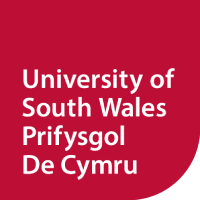About the Project
NEW Deadline: Midnight Sunday 30th October 2016 (Interviews will be held w/c 31st October 2016)
The project is co-sponsored by G-volution, a world leader in Advanced Multi-Fuel Technology, which enables engines to simultaneously combust diesel with gas and other fuels.
This KESS II MRes Studentship is to investigate to the reduction of emissions from dual fuel engines, through the injection of hydrogen to enhance in-cylinder combustion. The increasing numbers of natural gas fuelled vehicles in Europe offer lower emissions of CO2 than equivalent vehicles fuelled by petrol or diesel. Among this growing fleet are an increasing number of dual fuel heavy goods vehicles, where the efficient diesel engine is designed to run with a portion of the diesel displaced by cheaper, cleaner natural gas in a dual fuel configuration. Dual fuel technology has been successful in meeting Euro V emissions standards, but a problem remains with meeting the tighter Euro VI emissions standards for hydrocarbon emissions arising as a result of un-combusted methane. This ‘methane slip’ is a concern as methane has a significantly higher global warming potential than carbon dioxide and methane exhaust emissions from dual fuel engines can effectively nullify the benefit of reduced carbon dioxide emissions.
This MRes studentship aims to investigate the reduction of hydrocarbon emissions from dual fuel engines through the injection of a controlled amount of hydrogen to enhance combustion in the cylinder. Specifically, investigation will concentrate on modelling of hydrogen injection to dual fuel HGV engines to overcome methane slip whilst also minimising NOx production from the engine. The successful candidate will be supported by industrial supervision from G-volution and by professorial and post-doctoral researchers at USW. Linkage to existing projects such as ERDF funded FLEXIS project will give the successful candidate access to a larger network of researchers and related industrial interests. Whilst the student will initially study towards a qualification of MRes, there is a possibility to continue study to PhD, subject to satisfactory performance and external funding
Eligibility of Student:
To be eligible to hold a KESS studentship, you must:
- have a home address in the Convergence area* (details below) at the time of registration.
- have the right to take up paid work in the Convergence area* on completion of the scholarship.
- be classified by the University as ‘home’ or ‘EU’ for tuition fees purposes, according to the University’s guidelines.
- satisfy University of South Wales’ admissions criteria: see below
*The Convergence area covers West Wales and the Valleys, and is made up of the following 15 local authorities: Isle of Anglesey, Gwynedd, Conwy, Denbighshire, Ceredigion, Pembrokeshire, Carmarthenshire, Swansea, Neath Port Talbot, Bridgend, Rhondda Cynon Taf, Merthyr Tydfil, Caerphilly, Blaenau Gwent and Torfaen.
Qualifications and experience:
Eligible applicants will have:
- Have a degree (2i or higher) in an appropriate Scientific/Engineering discipline
- Possess a detailed understanding of combustion processes or chemical engineering
discipline would be of advantage.
- Be highly self-motivated, with capacity to learn and develop scientific techniques
- Have well-developed and positively collaborative interpersonal skills
- Have an ability to deliver technical reports and communicate science
- Be willing to travel and work in industrial settings
The position is available from January 2017.
Funding Notes
The project is funded by the Knowledge Economy Skills Scholarship (KESS) programme and will be based in the Faculty of Computing, Engineering and Science at the University of South Wales. KESS is a programme funded by the European Social Fund (ESF) awarded by the Welsh European Funding Office (WEFO) in the Welsh Government.
The studentship will cover the fees for a 1-year full-time MRes programme and pay a stipend of circa £11.2k p.a. There is also around £3k project support costs available for consumables, travel/conference attendance, minor equipment, training (including the KESS Grad School) and conference attendance.

 Continue with Facebook
Continue with Facebook

